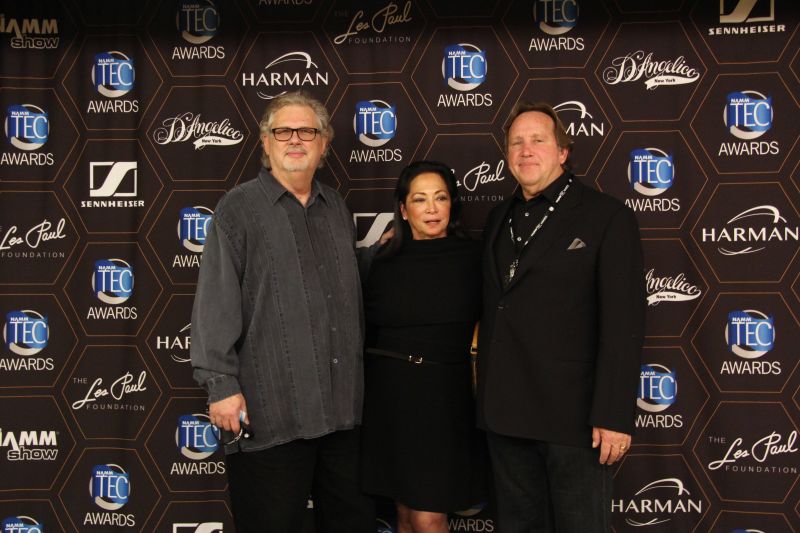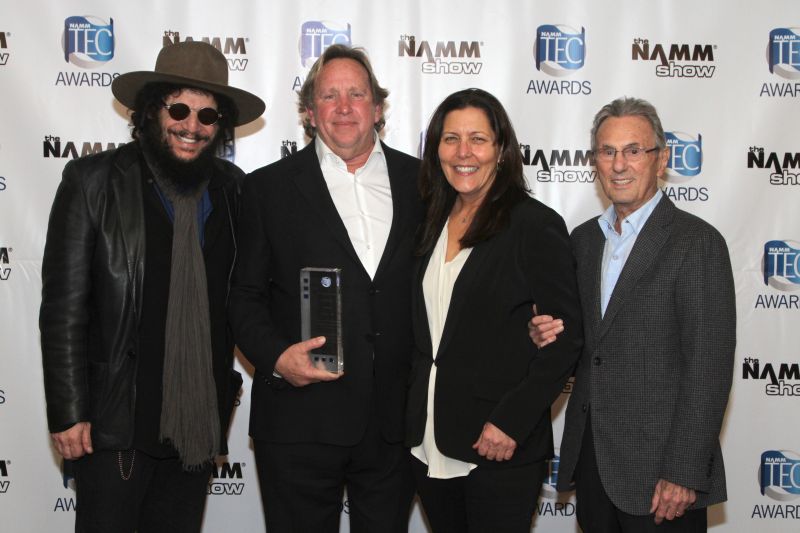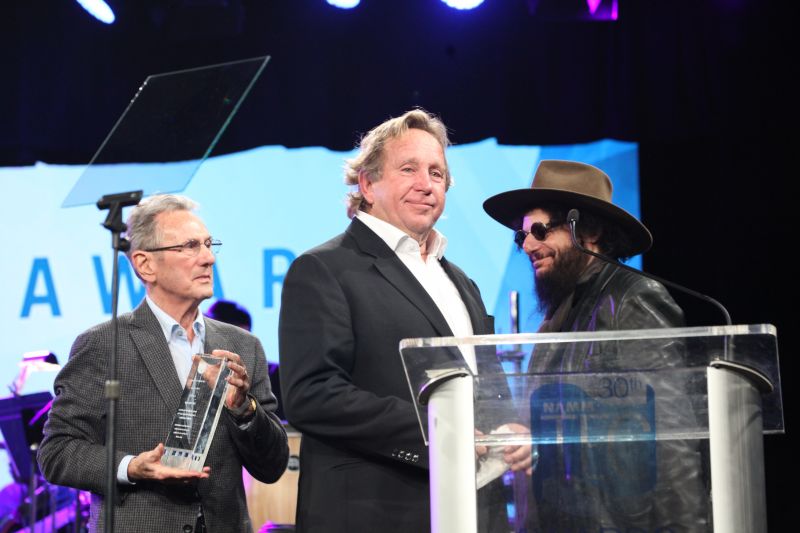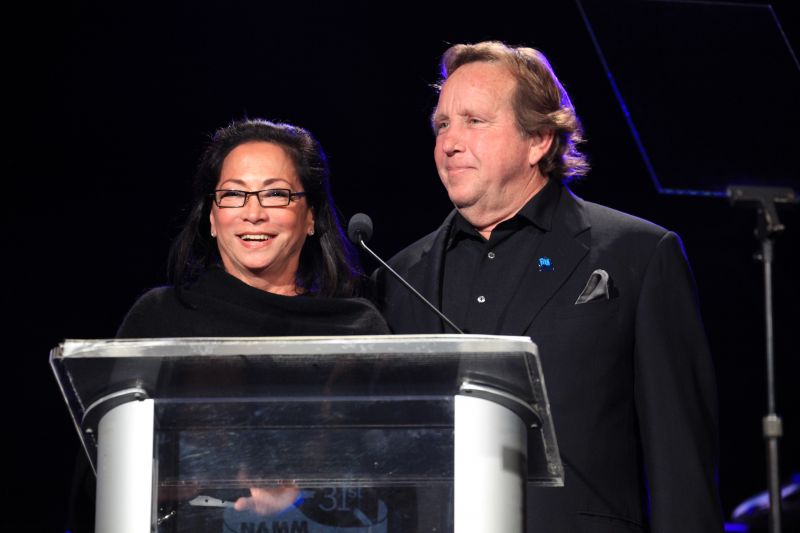Remembering Ed Cherney
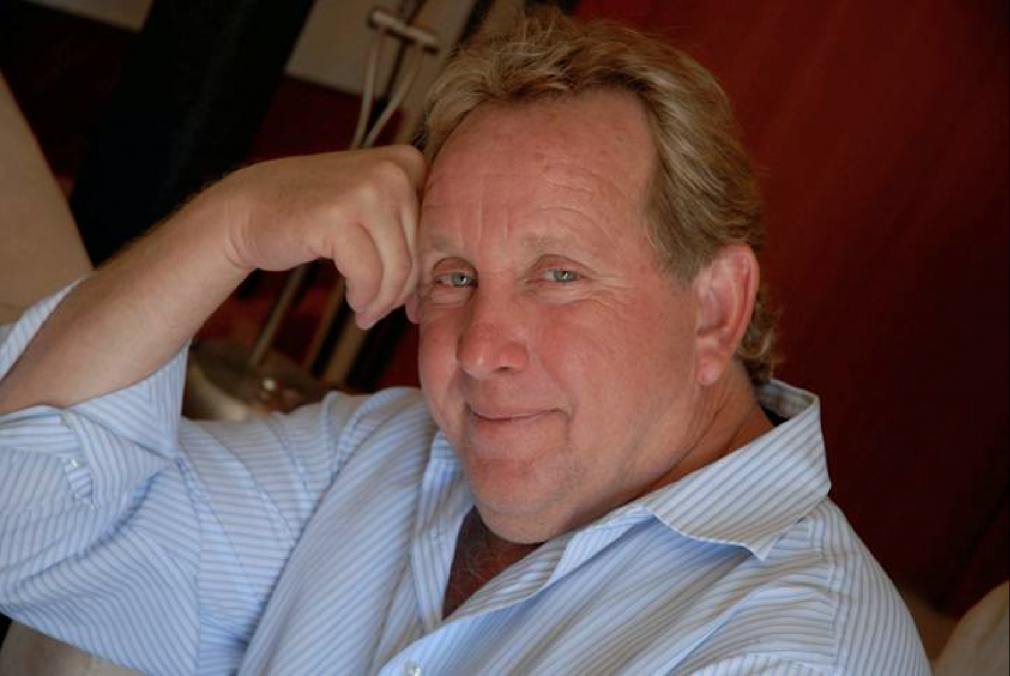
“To be open, honest, and giving. If I can manage to do that, every day is an “anything-can-happen-day.”
Ed Cherney shared those words with NAMM in an interview in 2015; the same year, he was honored with the NAMM TEC Hall of Fame Award. He said that was his life’s motto: to be open, honest, and giving. It was this natural humility and kindness, with an innate sense of talent and accessibility that made Ed a beloved – and revered icon – in our community.
He lived one of the fundamental truths of success: be great at what you do but also add something more. That ‘something more’ was his passion and love for everyone around him. Ed was a bridge between so many worlds, including ours, recognizing and strengthening the collaborative relationship between NAMM members who invented the innovative tools used in the studios and those who then, in turn, used those tools to create the soundtrack of our lives.
I think of the thousands, if not, tens of thousands of aspiring audio professionals that Ed inspired with his ingenuity in the studio or by taking the time to share his knowledge. Whether through listening to an album he produced or engineered or hearing a word of wisdom from him the many times he stopped and talked in conversation at The NAMM Show, Ed was kind, accessible, and, most of all, inspirational, offering encouragement to all those he encountered.
The global NAMM community will keep Ed’s family and friends in our thoughts during this difficult time.
Joe Lamond, NAMM President and CEO
TEC Awards Interview with Ed Cherney
Originally published January 2015
https://www.tecawards.org/hall-of-fame/talks/ed-cherney
As we look forward to the 31st Annual NAMM TEC Awards, we caught up with recent Hall of Fame inductees to glean insights about their experiences both in and out of the studio.
NAMM TEC Awards Hall of Fame Inductee Ed Cherney didn’t set out to become a GRAMMY-winning producer and recording engineer. But in the end, his natural talent and “sonic signature” made him an industry legend who’s worked with such musical superstars as Bonnie Raitt, Eric Clapton, The Rolling Stones, Sting and Bob Dylan to name a few.
We asked Ed to share his thoughts on a variety of topics, from how to succeed in the studio to where he goes to get away. Here are a few of the highlights.
On Succeeding in the Studio
“To be a great engineer, one needs many skills. It’s a given that you need monster studio chops. You also need interpersonal skills, like how to make people comfortable enough to give performances of a lifetime, but at the same time to be confident and strong enough to not get rolled over or bullied.
“You may be born with the desire to be a recording engineer, have attended school or served an apprenticeship, but the only way to be great is to spend many years doing it. Experience is everything. To develop your own sonic signature and gain chops, the only way to become great is by spending the time in the studio—failing, messing up, getting fired, making mistakes, picking yourself up after getting knocked down.
“There’s no greatness without great failure, making every mistake, putting in the time working on every type of music in every kind of environment. That’s how you gain the experience and the confidence to be truly great.”
What Ed Enjoys Most About His Career
“Making a hit is pretty enjoyable. Getting paid is pretty enjoyable. Getting a gig is really enjoyable. But for me when doing a tracking date and the musicians come into the control room for playback and are knocked out (in a good way) and high-fiving each other, that’s just the best. In that vein, during a mix when your artist and producer sit down in front of the console for a playback, and you knock their socks off and have no comments or—only that it’s great—is also the most enjoyable thing.
"The way I get the most out of my musicians is to create an environment that they feel safe enough to suck, because sometimes that’s where greatness comes from. Also providing a great and inspiring headphone or monitor mix is helpful."
His Music Mentors
“As an assistant engineer I got to sit behind Bruce Swedien, and Quincy Jones. That was like getting a PHD. But early on I sat behind other brilliant engineers. Mick Guzauski is pretty great, as is Tommy Vicari. I actually learned not only from the engineers I sat behind, but the producers, arrangers and musicians always had something to teach. Both good things and bad things.”
There’s Power in Resiliency
“The one thing I’m most proud of is my ability to pick myself back up after bad things happen. Sometimes you deserved to fail, other times failure was thrust on me from outside influences that had very little to do with me. This business can break your heart, and surviving and even flourishing after heartbreak gives me a little bit of pride.”
The One Piece of Equipment Ed Can’t Live Without
“I truly need great speakers. Those are our window to the world. That being said, nobody leaves the studio dancing to the equipment.”
When He’s Not Behind the Board, You’ll Find Ed…
“…on the golf course, which is the exact opposite of the studio. I also like boats and being on the water.”
His Life Motto
“To be open, honest and giving. If I can manage to do that, every day is an “anything-can-happen-day.”
Making It in the Music Industry
“This is a cruel and unforgiving business. There are absolutely no guarantees. You can do everything right and never earn a nickel. It’s a given that you need some skill, but you certainly need some good fortune. That being said, the best way to succeed is to never, ever, ever give up.”
